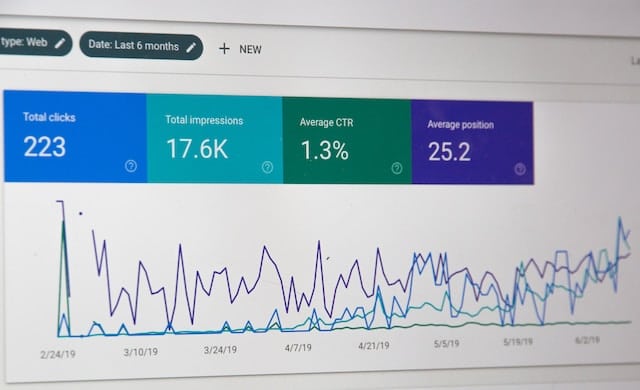Effective management of business finances is a crucial aspect of any successful company. It involves a delicate balance of maximizing income, minimizing expenses, and wisely managing the available financial resources. The ability to efficiently manage these aspects can significantly boost a company’s financial performance, leading to sustained growth and stability.
Intro
In today’s dynamic economic environment, businesses need to be more strategic and proactive in their financial planning. Each tip in this article is designed to provide actionable insights that can help business owners and finance managers make informed decisions, ensuring the financial health and success of their organization.
1. Streamlining Expense Management
Effective expense management starts with a clear understanding of where the money is going and identifying any areas where costs can be reduced without impacting business operations.
A practical approach is to categorize expenses and track them regularly. This categorization helps in understanding which expenses are necessary and which are discretionary. Additionally, businesses can leverage technology to simplify this process.
Using software for expense tracking can automate the process, reduce errors, and provide real-time insights into spending patterns. This approach not only helps in maintaining a healthy cash flow but also aids in making informed decisions about cost-cutting and budget allocation.
2. Maximizing Tax Credits and Incentives
One of the most effective ways to manage business finances is by maximizing available tax credits and incentives. A prime example is the Employee Retention Credit (ERC), a valuable tax relief measure for businesses. The ERC is designed to encourage businesses to keep employees on their payroll during challenging economic times.
By understanding and applying for ERC, businesses can significantly reduce their tax liabilities. This is the same for a number of financial terms and forms, such as an 83b election letter if you are granted restricted stock as part of your compensation package. A financial advisor can help you understand where to send 83b election letters if it’s applicable to your business.
Let’s consider some ERC Examples to see how this works in practice. A small business that retained its staff during a period of reduced operations due to economic downturns could claim the ERC to receive a tax credit. This credit directly offsets their payroll tax liability, providing much-needed financial relief.
In another scenario, a mid-sized company that experienced a significant decline in gross receipts but continued to pay employees could also benefit from the ERC. By claiming this credit, the company could manage its finances more effectively during tough times.
These examples illustrate how leveraging tax credits like the ERC can provide substantial financial benefits. Businesses that stay informed and take advantage of such incentives can enhance their financial performance and stability.
3. Enhancing Revenue Streams
Enhancing revenue streams is vital for financial growth and stability, and this can be achieved by identifying and developing new sources of income. Diversifying revenue streams ensures that the business is not overly reliant on one source of income, which can be risky in times of market fluctuation or economic downturns.
Businesses can look into different areas for potential revenue enhancement. For example, if a business is solely focused on a single product or service, it could explore complementary products or services that meet the needs of its existing customer base. Another approach is to expand into new markets or demographics, opening up additional revenue opportunities.

An example of successful revenue stream enhancement is a retail store expanding its offerings online. By establishing an e-commerce platform, the store can reach a wider audience and increase sales. Similarly, a service-based business, such as a consultancy firm, could offer online courses or webinars as an additional revenue stream. These strategies not only increase income but also help in building a more resilient business model.
4. Implementing Strong Budgeting and Forecasting Practices
Effective financial management also hinges on strong budgeting and forecasting practices. Creating a budget involves outlining a detailed plan for your income and expenses over a specific period, usually a year.
Forecasting, on the other hand, involves predicting future income and expenses based on historical data and market trends. Together, these practices provide a roadmap for financial health and help avoid potential financial pitfalls.
A robust budget acts as a financial compass, guiding businesses in their spending and investment decisions. It ensures that expenses align with strategic goals and that there’s adequate cash flow to support operations.
For instance, a business might allocate a portion of its budget to marketing and sales activities to drive revenue. In contrast, another portion might be set aside for research and development to fuel future growth.
Forecasting, meanwhile, enables businesses to anticipate changes in the market and adjust their strategies accordingly. For example, a company might forecast a decrease in sales due to an upcoming market downturn and adjust its budget to reduce expenses in certain areas. Accurate forecasting helps businesses stay agile and responsive to changing economic conditions.
5. Regular Financial Health Check-ups
Just like regular health check-ups are vital for maintaining personal well-being, regular financial health check-ups are crucial for the health of a business. It involves routinely reviewing financial statements, such as income statements, balance sheets, and cash flow statements, to evaluate the business’s financial performance and identify areas for improvement.
These check-ups can reveal vital insights, such as profitability trends, expense patterns, and the efficiency of cash flow management. For instance, a regular review might show that a significant portion of the budget is going toward an underperforming product line, indicating a need for reallocation of resources.

Additionally, businesses should consider professional audits or consultations. External auditors can provide an unbiased view of the company’s financial status, uncovering issues that might not be apparent from the inside. This external perspective can be invaluable in identifying risks and opportunities that might otherwise go unnoticed.
Regular financial reviews ensure that businesses stay on track with their financial goals and can adapt quickly to changing circumstances, maintaining their financial health and resilience.
6. Investing in Financial Education and Training
An often overlooked aspect of managing business finances is the importance of financial education and training. A financially literate team can make a significant difference in a company’s financial performance. Business owners, managers, and employees with a strong understanding of financial principles can make better decisions, spot opportunities, and avoid costly mistakes.
Investing in financial education can take many forms, such as workshops, online courses, or in-house training sessions. Topics might include budgeting, financial analysis, and understanding financial reports. These educational initiatives empower team members with the knowledge they need to contribute positively to the company’s financial health.
Moreover, a culture of financial literacy promotes more effective communication across departments, as everyone has a better understanding of the financial implications of their decisions and actions. This comprehensive approach not only improves individual performance but also enhances the overall financial acumen of the organization.
Conclusion
In conclusion, managing business finances effectively is a multifaceted endeavor that extends beyond mere number crunching. It involves maximizing tax credits and incentives, streamlining expense management, enhancing revenue streams, implementing strong budgeting and forecasting practices, conducting regular financial health check-ups, and investing in financial education and training.
By adopting these six practical tips, businesses can not only improve their financial performance but also position themselves for sustainable growth and success in an ever-changing economic landscape.













Leave a Reply